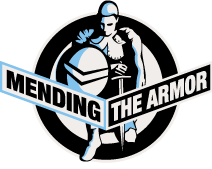Parent Support
Support for parents occurs through a weekly parent workshop that occurs each Tuesday at 5pm MST via Zoom. Parents develop a greater understanding of the nature of the problem and are provided with strategies for supporting their struggling child.
pARENT sUPPORT
Parenting a child who is struggling with an addiction to pornography can be frustrating and discouraging at times. Keep in mind that there are steps that parents can take to assist their children in overcoming the addiction. Pornography addiction is a serious and dangerous issue. Do not make the mistake of minimizing the potential consequences. Some parents assume that it is simply a phase and that it will eventually just go away. Experience has taught us that this is not the case. Most youth who become addicted to pornography are not able to break the addiction o their own without help.
Research and studies have found the most pornography and sexual addiction begins during adolescence. Unfortunately, most don't seek treatment until later in life after the addiction has caused significant damage and destruction to their lives.
We hold a strong belief that helping youth learn to manage the addiction now rather than later in life is a far better approach and saves a potential life time of future problems.
Frequently Asked Questions
How to distinguish between addiction and inappropriate behavior?
Why can't my son just stop viewing pornography?
What can I do as a parent to help my son overcome his pornography addiction?
Is professional intervention really necessary for youth struggling with pornography?
Tips for Parents
As found at www.combatingpornography.org
-Express Your Love. Express your love and your desire for your child to have a happy, successful life, and share your concern that involvement in pornography can jeopardize your child's future happiness and well-being, causing spiritual death and eternal disappointment.
-Teach. Teach your child how pornography distorts sexuality, causes users to view others as sexual objects, leads to various forms of immorality, and addicts its users.
-Follow Up. Once the problem has been acknowledged, keep the lines of communication open. Sexual transgressions thrive in secrecy but are less likely to recur when talked about in a sensitive, caring way.
-Respond Calmly. Avoid responding with shock and anger. Instead, be genuinely concerned and talk with your child in a respectful way.
-Learn. Ask how the problem got started, how long it has been going on, and how extensively the child is involved with pornography.
-Involve Leaders. Encourage your child to talk with church leaders and to get professional help if needed.
-Admonish Tenderly. Rather than preaching, threatening, or condemning, appeal to your child's better judgment. Admonish him or her “with all the feeling of a tender parent” to listen to your counsel
-Communicate. Find out how the child feels about his or her involvement and whether he or she plans to continue that involvement.
-Help. Provide help and encouragement as the child strives to overcome the problem.
Prevention Strategies
-Protect. Safeguard the home. As a family, discuss and implement healthy media habits such as placing restrictions on electronics, limiting television and computer time, installing Internet filters, and placing televisions and computers in high-use areas where the screens are visible to others.
-Exemplify. Immediately turn away from suggestive images and teach your children to do the same.
-Love. Develop a loving, open, and influential relationship with your children, teaching them proper values and healthy attitudes toward sexuality.
-Warn. Warn family members about pornography's ability to enslave and spiritually destroy them.
-Teach. Help family members understand the desensitization process that occurs from repeated exposure to immoral images and behaviors found on the internet, in social media, books, magazines, and popular television programs





